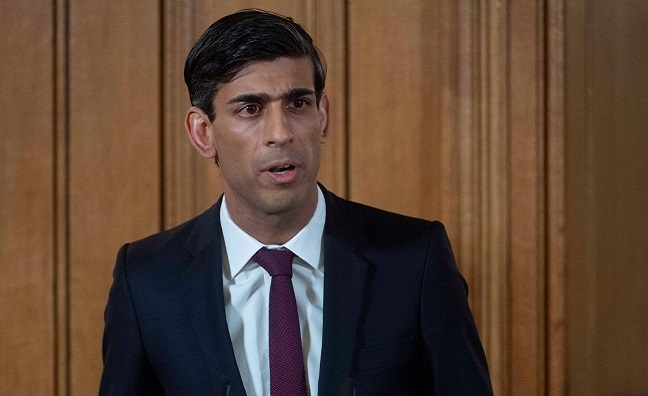Chancellor Rishi Sunak has announced plans to extend the furlough scheme until the end of March.
The government had already announced an extension during the lockdown across England in November. The music industry is impacted in a number of areas during the increased Covid restrictions, including record stores (closed as they are designated ‘non-essential’ retail) and recording studios, livestreams and TV/film production (allowed to continue under social distancing regulations).
The furlough system will particularly benefit music retail and the struggling live sector. Now extended for five months, the scheme will pay up to 80% of wages up to £2,500 a month.
As part of the scheme, anyone made redundant in the last six weeks (September 23) can be rehired and placed on furlough.
Support through the Self-Employment Income Support Scheme (SEISS) is also being increased. The grant covering the period from November to January is set at 80% of average trading profits (up to £7,500).
Michael Kill, CEO of the Night Time Industries Association, said: “While the crisis deepens and we move into a national lockdown for 28 days, we welcome the somewhat belated furlough update until March next year. The furlough scheme will absolutely help preserve jobs within the sector, but the challenge still remains, where there is still a considerable void in financial support for night time economy businesses, will there be jobs to go back to?”
He added: “Commercial rents are also a big concern for our sector, where the government has decided to push the issue further down the line with the forfeiture moratorium running until December 31, but business suffering under thousands of pounds of rent arrears.
“We appreciate that safety is paramount, but at some point we've got to consider the human element here and the immense pressure that individuals, venue owners, staff and freelancers are under at the moment given the current financial, economic, cultural and social wellbeing environments that are being presented by government, particularly around our sector.”
Incorporated Society of Musicians chief executive Deborah Annetts said: “We are delighted that the government has extended the Coronavirus Job Retention Scheme until the end of March and is increasing support for the self-employed to 80% of trading profits across the November to January period. These measures represent a positive step towards the government fulfilling its commitment to deliver parity between employed and the self-employed.
“Today’s announcement is the third change to the Self-Employed Income Support Scheme (SEISS) in a short period, following the ISM’s tireless campaigning on this issue. We told the government that their initial approach was insufficient and they have listened, benefitting thousands of musicians who cannot work while performance venues remain closed.
“However, as we have said each time the government changes the level of SEISS, the grant only benefits those able to receive it. An estimated three million self-employed workers continue to be excluded from receiving it at all so expanding the eligibility criteria remains essential for preventing an exodus of highly skilled talent from our world-leading arts sector.”











